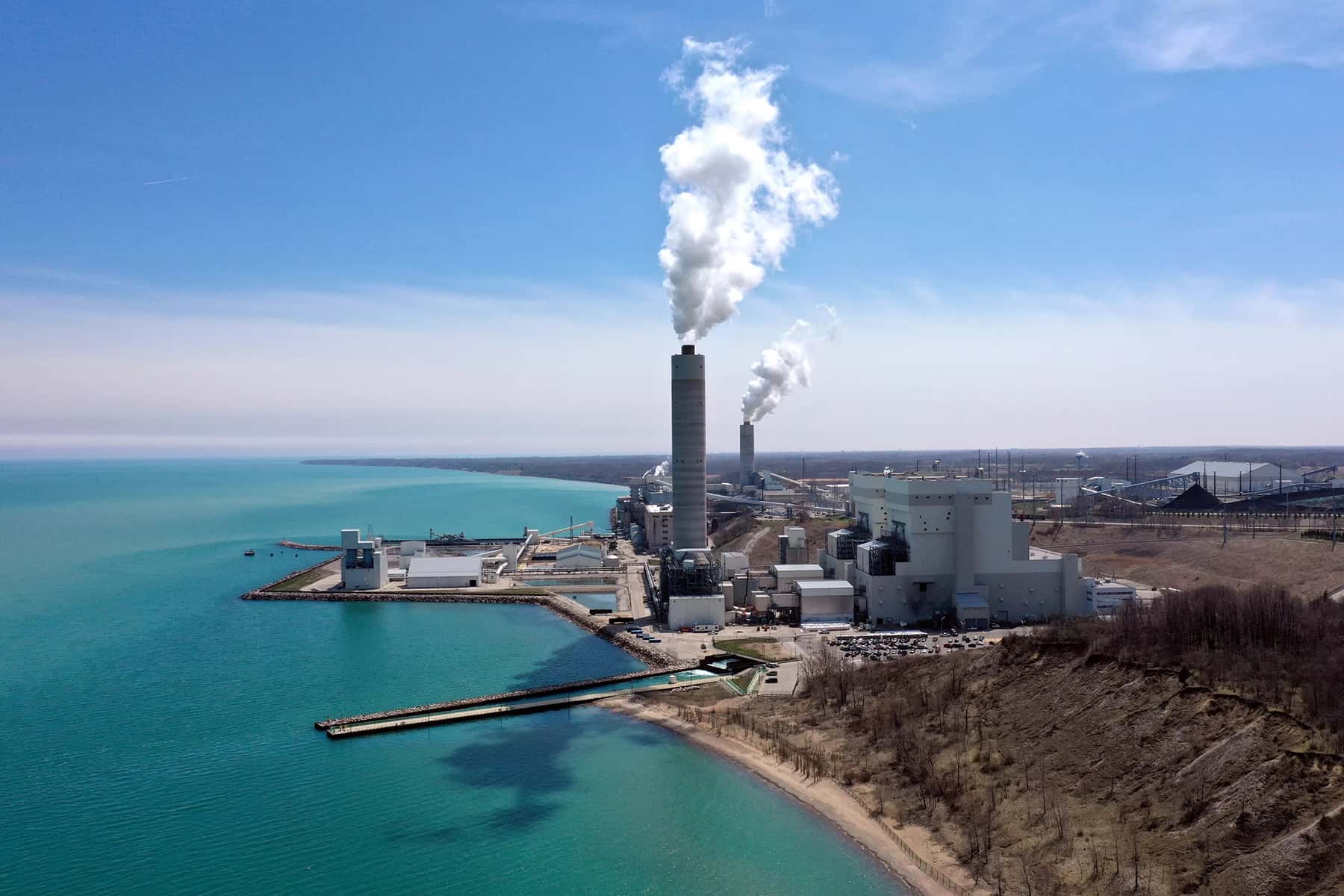
Wisconsin’s largest utility company plans to drop coal from its power mix by 2035, moving the state closer to carbon reduction goals.
The company, which owns We Energies and Wisconsin Public Service, expects coal to make up less than 5 percent of its power mix by the end of the decade.
“We’re well on our way to achieving some of the most aggressive goals in our industry for reducing carbon emissions,” said Gale Klappa, executive chair of WEC Energy Group.
The company plans to make changes to its two coal-fired units at the Elm Road Generating Station that would allow a fuel blend of up to 30 percent natural gas pending regulatory approval.
“Over time, we will be able to transition completely away from coal by making incremental investments in plant equipment,” Klappa said.
Scott Lauber, the company’s chief operating officer, said preliminary figures show the cost of completely converting to natural gas at the 1,200-megawatt plant would run around $150 million. The company is also evaluating whether to blend fuel with natural gas at its newer coal-fired unit at the Weston Power Plant in central Wisconsin.
The costs for making those adjustments and building renewable energy projects could be recovered through rates, which would be subject to regulatory approval. WEC Energy Group expects the transition away from coal to cleaner energy sources will save customers $1 billion over 20 years.
Last year, WEC Energy Group announced it was retiring the roughly 1,100-megawatt South Oak Creek coal plant in southeastern Wisconsin as part of plans to shift away from 1,800 megawatts of fossil fuel generation.
Governor Tony Evers set a goal in 2019 for Wisconsin to consume carbon-free electricity by 2050. The utility company announced last year that it plans to go carbon neutral by that date.
Sierra Club Wisconsin hailed the company’s pledge to move away from coal faster. Even so, the environmental group denounced the company’s plans to replace coal with natural gas.
“Coal is not where we need to be at, and the same is true of gas now, and it’s going to be even more true as we move forward in time,” said Jadine Sonoda, campaign director for Sierra Club Wisconsin. “So, it’s really disappointing, especially in light of (President Joe Biden) just recently talking about how important it is to decrease methane emissions.”
Methane is a greenhouse gas that stems from oil and natural gas operations, as well as livestock. Methane emissions don’t last as long as carbon emissions, but they’re 80 times more potent than carbon dioxide at trapping heat in the atmosphere.
On November 2, the Biden administration announced plans to limit methane emissions from existing oil and natural gas operations for the first time. The announcement came as world leaders are making commitments to limit global warming at the United Nations Climate Change conference. Klappa said the company has set a target to reach net-zero methane emissions by 2030.
Sister Janet Weyker with the Racine Dominicans has been pushing We Energies to shut down coal-fired units at the Oak Creek site as part of the Clean Power Coalition in southeastern Wisconsin. She’s pleased to see the utility moving away from coal, but Weyker would like to see more emphasis placed on transitioning to renewable energy sources.
“The burning of any fossil fuel is not good for the planet. It’s not good for people’s health. It’s not good for solving climate change problems,” Weyker said.
The company expects to invest $5.4 billion in renewables over the next five years as part of its $17.7 billion capital plan, which has increased by about $1.6 billion since last year. WEC Energy Group has invested $1.5 billion in renewable energy during this year alone, said the company’s spokesperson Brendan Conway.
The company will expand its investment in renewable energy to include 2,400 megawatts of solar, wind and battery storage. That would mean an additional 700 megawatts of solar and 500 megawatts of battery storage that are yet to be announced.
Among existing renewable developments in Wisconsin, the first phase of the Badger Hollow Solar Farm in Iowa County is set to wrap up by the end of the month after experiencing delays due to the COVID-19 pandemic. Wisconsin Public Service owns 100 megawatts of that portion of the project along with Madison Gas and Electric, which owns 50 megawatts. We Energies and Madison Gas and Electric aim to complete the second phase of the project by the end of next year.
We Energies serves nearly 2.3 million electric and natural gas customers, while Wisconsin Public Service provides electricity and natural gas to just under 800,000 customers in Wisconsin.
Danielle Kaeding
Coburn Dukehart
Originally published on Wisconsin Public Radio as Wisconsin’s largest utility company plans to drop coal by 2035














